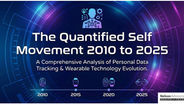Digital Health Institute Scotland : We are ready to deliver a digital revolution
- Greg Russell
- Apr 3, 2018
- 3 min read

Scotland is on the brink of unveiling a system that will revolutionise healthcare by allowing people to plug in their smart devices to see what health data is held on them and pass it on to doctors, social carers or family in a readable format.
Talking exclusively to The National, Professor George Crooks, CEO of the Digital Health Institute Scotland (DHI), said the architecture would use products that existed now and would be revealed within months.
“The data is presented to your doctor, social carer, yourself, or family in a way that makes it easy to understand and allows you to make informed decisions.
“That’s not 10 years off – we’re building that now and we’ll have the prototype model available within the next six to eight weeks. That is using products that exist today in Scotland.
“When we build that we can bring people in and show them how it works. We can show them how the data flows, how algorithms can work on that data to interpret it, because it’s all about building trust.
“People trust their NHS, but don’t trust digital services – not because they don’t want to because most of us do banking online, it’s because they don’t understand it – and we don’t trust things we don’t understand. In Scotland ‘if ah cannae work it ah’m not gonna buy into it thanks very much’.”
Crooks was talking about how we subconsciously use digital tools and services in our everyday lives, with smartphones that are more powerful than the computers that sent the first man to the moon.

However, he said that when we move into the field of healthcare we can often take a 10-year step backwards in how we use technology.
“Up until about five to seven years ago the vast majority of spend in healthcare was spent in what was known then as e-health – technology solutions that were designed to service the needs of individual health boards or organisations for the staff that worked in them. The patients were the passive recipients.
“Over the last five years we’re now focussing on digital tools and solutions that are primarily focussed on our citizens – providing them with health advice and information, care advice and information, and support to allow you as a citizen of Scotland to make informed decisions about your health and wellbeing, as well as allowing you to do more for yourself – including monitoring your own long-term condition like diabetes, cardiac failure or COPD.
“These are examples of digital tools and services that are becoming increasingly frequently deployed within the health and care system and they’re only going to become more common as we move forward.”
DHI-Scotland’s remit is to allow people to enjoy healthier lives at the same time as creating economic growth opportunities for the country, while engaging with the academic community and our industrial base, especially small to medium-sized enterprises (SMEs).

Crooks says the centre makes good use of the whole spectrum of companies: “We have global technology at one end to small academic spin-outs at the other and everything in between.
“What started off as a niche market you now have large consumer electronics companies, so the Apples, the Sonys, the Googles of this world now moving into the world of health care.
These large companies are slowed down and held back because they are large corporate structures with lots of systems and processes internally that slow down decision-making.
“Getting one of those paired up with a very small, agile, lean enterprise in Scotland can create huge synergies between the two, allowing them to work together to create solutions to benefit Scotland by addressing some of our key problems.
“It’s not as simple as some people make out, but neither is it as complicated as some people make it out.”
Crooks says there are challenges ahead including a world shortage of data scientists, as well as upskilling everyone now – and in future – working in the delivery of health and care.
“That’s why DHI Scotland is working with the support of Scottish Funding Council with the colleges in Scotland in a programme where we are upskilling lecture staff to include next generation digital tools and services in their core curriculum so the carers of tomorrow – who’ll be coming out in a few years’ time into a world that’s using technology in a way that’s different to how we’re using it today.”

















































Comments